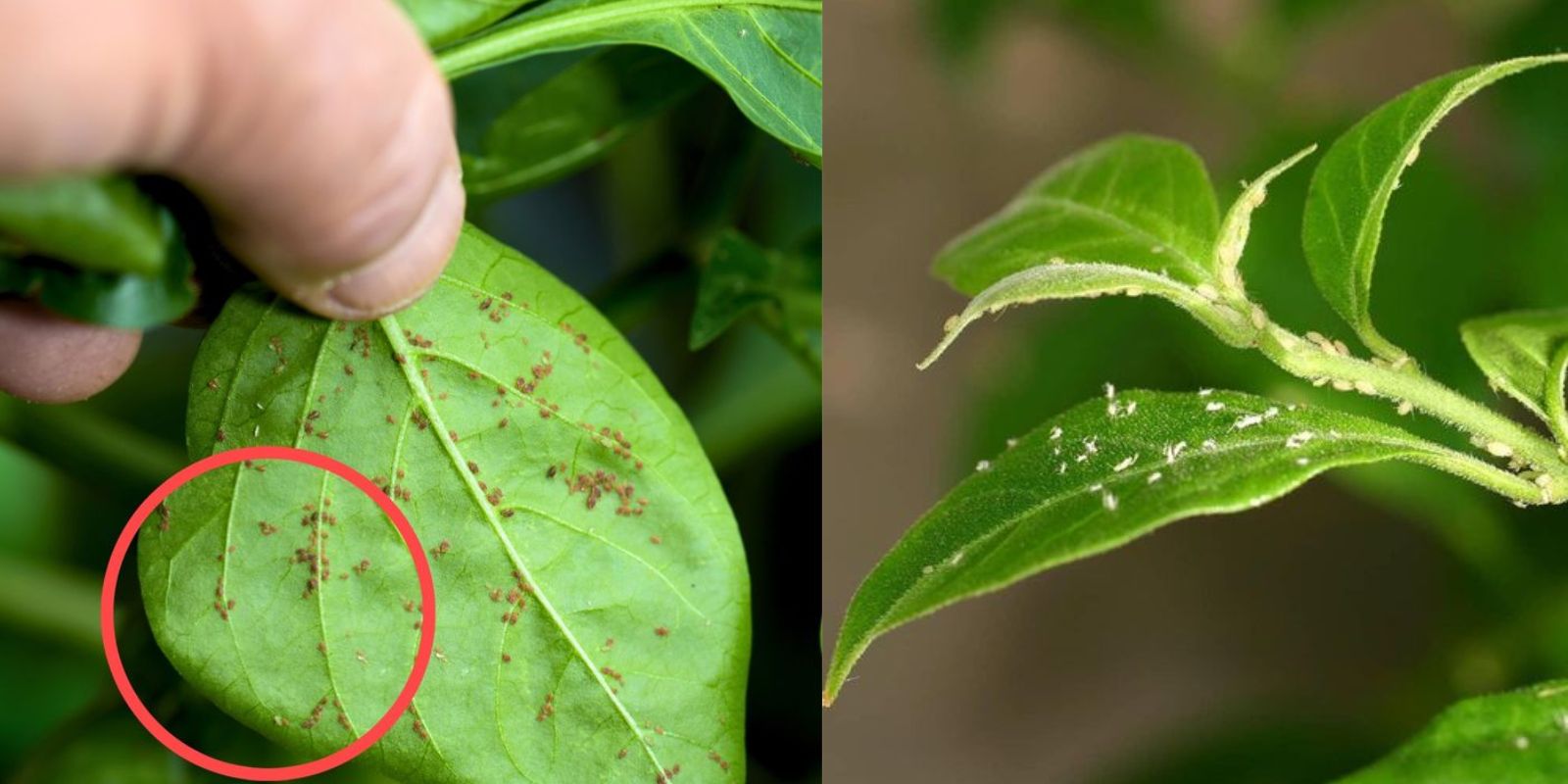Introduction
Aphids and scale insects are common pests that can cause significant damage to your plants. They feed on plant sap, weakening your plants and potentially spreading diseases. While chemical pesticides are often used to tackle these pests, there are natural, eco-friendly methods that can be just as effective. This article explores simple, natural ways to eliminate aphids and scale insects, helping you maintain a healthy, thriving garden without resorting to harmful chemicals.
Understanding the Problem
Aphids are small, soft-bodied insects that come in various colors, including green, black, and brown. They are often found on the undersides of leaves and along stems. Aphids reproduce quickly and can form large colonies that cause significant damage to plants.
Scale insects are slightly more challenging to spot. They are small, immobile, and covered with a protective shell, making them look like tiny bumps on the plant’s surface. Scale insects can be found on stems, leaves, and even the roots of plants.
Steps to Eliminate Aphids and Scale Insects Naturally
1. Inspect Your Plants Regularly
The first step in managing aphids and scale insects is to conduct regular inspections. Look closely at the leaves, stems, and buds of your plants for signs of infestation. Early detection allows you to take action before the pests cause extensive damage.
- For Aphids: Check for clusters of small, soft-bodied insects and sticky honeydew on leaves and stems.
- For Scale Insects: Look for small, immobile bumps or shells on the plant’s surface.
2. Use Neem Oil
Neem oil is a versatile, natural solution that is effective against various pests, including aphids and scale insects. It works by disrupting the pests’ life cycle and preventing them from feeding and reproducing.
How to Use Neem Oil:
- Mix the Solution: Combine 2 tablespoons of neem oil with 1 tablespoon of mild liquid soap and 1 quart of water.
- Apply to Affected Areas: Spray the neem oil mixture directly onto the infested parts of the plant, ensuring thorough coverage on both the tops and undersides of leaves.
- Repeat as Needed: Apply the neem oil every 7 to 14 days until the infestation is under control.
Neem oil is safe for most plants and beneficial insects, making it an excellent choice for natural pest control.
3. Introduce Beneficial Insects
Beneficial insects can provide natural control of aphid and scale insect populations. These insects prey on pests, helping to keep their numbers in check.
Beneficial Insects to Consider:
- Ladybugs: Ladybugs are well-known aphid predators. They can consume large quantities of aphids and help reduce their numbers significantly.
- Lacewings: Lacewing larvae feed on aphids, scale insects, and other small pests. They are effective in controlling various pest populations.
- Parasitic Wasps: Certain species of parasitic wasps lay their eggs inside aphids or scale insects. The developing larvae then consume the pests from the inside out.
How to Introduce Beneficial Insects:
- Purchase from a Reputable Supplier: Buy beneficial insects from a reputable supplier to ensure you receive healthy, effective predators.
- Release in Infested Areas: Release the insects in areas with the highest pest populations. Follow the supplier’s instructions for the best results.
- Avoid Using Broad-Spectrum Insecticides: To protect beneficial insects, avoid using broad-spectrum insecticides that can harm them.
4. Create a DIY Insecticidal Soap
Insecticidal soap is a gentle, natural method for controlling aphids and scale insects. It works by suffocating the pests and breaking down their protective outer layers.
How to Make Insecticidal Soap:
- Ingredients: Mix 1 tablespoon of mild liquid soap (such as Castile soap) with 1 quart of water.
- Apply to Plants: Spray the soapy water directly onto the infested areas, making sure to cover the pests thoroughly.
- Repeat as Needed: Reapply every 7 to 10 days or as needed to control the infestation.
Insecticidal soap is effective against aphids and scale insects but is generally safe for most plants and beneficial insects.
Additional Tips for Managing Aphids and Scale Insects
- Maintain Plant Health: Healthy plants are better able to withstand pest infestations. Ensure your plants are well-watered, properly fertilized, and free from stress.
- Use Reflective Mulch: Reflective mulch can deter aphids by confusing them and making it harder for them to locate your plants.
- Prune Infested Parts: For severe infestations, consider pruning heavily infested parts of the plant. Dispose of the pruned material to prevent spreading the pests.
- Keep the Garden Clean: Regularly remove fallen leaves and debris from your garden to minimize pest habitats.
Conclusion
Aphids and scale insects are common garden pests that can cause significant damage if left unchecked. However, with a few natural and effective methods, you can control and eliminate these pests without resorting to harsh chemicals. By regularly inspecting your plants, using neem oil, introducing beneficial insects, and applying DIY insecticidal soap, you can maintain a healthy and thriving garden. Embrace these natural solutions and enjoy a pest-free garden that is both environmentally friendly and safe for your plants. 🌱✨

